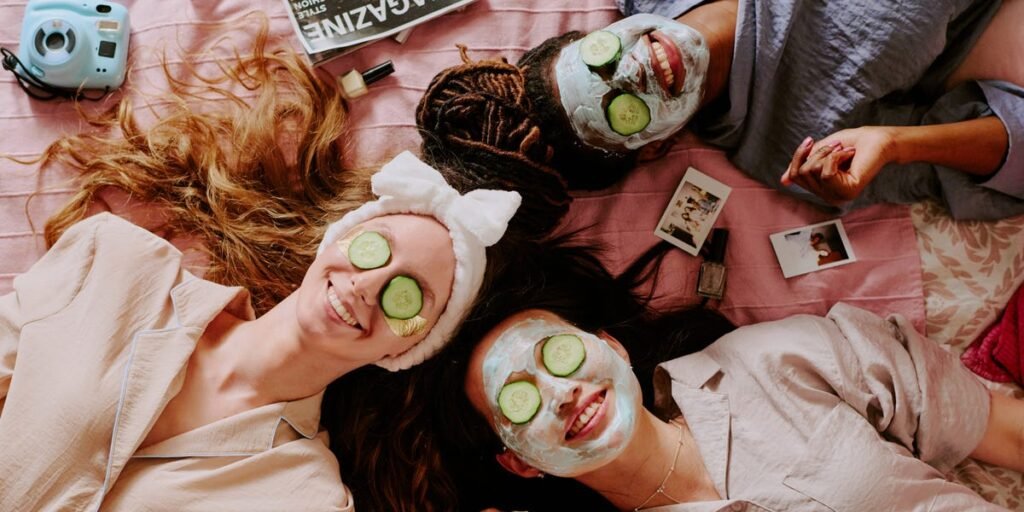My hot take: Parents should be saying “yes” to more sleepovers.
When my children — ages 14, 12, and 10 — come to me, usually flanked by a friend, eyes shining with unhinged hope and trepidation to ask for a sleepover, I almost always agree to it.
Perhaps this decision isn’t as controversial as it feels, but often, my “yes” is met by a “no” from the friend’s parents’. And I get it.
Sure, we’ve met in passing, but they don’t know if my husband is a bit too friendly with kids, or if I fancy myself the “cool mom” who would rather host a kegger than risk my kids attending one elsewhere. They don’t know if my kids have unfettered access to the internet and will use it to expose their babies to the kind of trash they’ve carefully protected them from for the last ten years. They don’t know, so they don’t risk it, and I respect this.
Sleepovers are important to me because of my own childhood
At my house, we do sleepovers because my parents never let me. They had all the concerns I listed above, and several more I likely don’t remember. When I was allowed to hang out at a friend’s house in the evening, I always got picked up by bedtime. I remember leaving birthday parties hours earlier than the other girls, or as I liked to call it, the real party time. I called it this because the girls would tell me later about what happened after I’d left. Janelle prank-called Emily’s crush. Jill’s mom yelled at them for playing tag in the basement. Amanda learned she would marry Joey during a two-hour round of MASH, a popular fortune-telling game.
To an adult, these silly stories may sound like I didn’t miss much, but I believe that not getting to participate eventually led to my isolation. I simply had no way to keep up with my friends’ inside jokes and the intense bond they forged in the wee hours of the morning after enjoying too many Twizzlers. At first, they always begged me to stay and even offered to ask my mom for me, but after a few times, this stopped. Eventually, the invites dried up altogether.
I ensure all parents feel as good as they can going into an overnight
While I understand the risks can be high at a sleepover, I also recognize there are risks on the other side. My parents’ overprotective parenting style created an environment of solitude that defined my adolescence. Perhaps a few overnights with giggling, feuding, daring, and secret-sharing girls wouldn’t have fixed this, but I think the joy, play, and camaraderie would have helped.
For me, the rewards outweigh the risks, especially since I have the power to minimize those risks. I make sure I meet the parents ahead of time. I can — and do — ask the awkward questions, like if there are guns in the house and if they are stored responsibly. These questions have always been met with gracious understanding by the other parents.
I also look up every resident in the house on the sex offender registry. And I talk to my kids about the importance of listening to their discomfort when people or situations don’t feel right. We have a plan for what they should do if they want to leave but aren’t comfortable telling their friend or their friend’s parents.
I trust my kids so that they can trust themselves
I think that slumber parties pre-vetted by mom offer great opportunities for my children to develop skills of intuition and self-advocacy. If I don’t trust my kids, how will they ever learn to trust themselves?
I believe age and maturity are crucial considerations. I’ve taught my 12-year-old that adults who ask them to keep secrets are creeps and that if their friends are messing around with drugs or internet “boyfriends” they need remove to themselves from the situation. My kids know better, whether or not they do better will always be a matter of hope on my part rather than control.
So far, my kids have had only wonderful experiences, and watching them bond with their friends over 3 a.m. kitchen raids has healed me in many ways as well. I understand why sleepovers have become so controversial to some, but what I wish more parents understood is that there are risks and benefits on both sides of the debate.
Read the full article here


